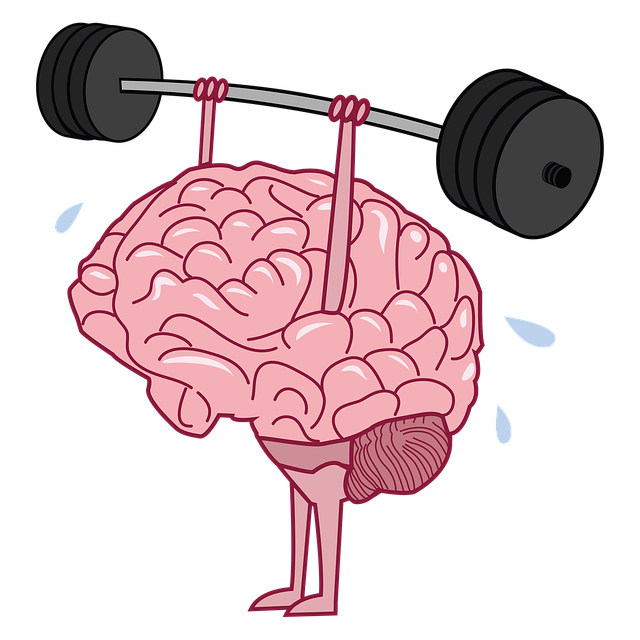Englewood Depression Therapy promotes positive thinking as a key strategy for improving mental wellness. Through their coaching programs, they teach clients techniques like gratitude journaling and cognitive reframing to enhance resilience, self-esteem, and overall well-being. This approach extends beyond individuals, advocating for supportive mental health policies that encourage self-care. By consistently practicing positive thinking exercises, trauma survivors can heal faster, and everyone can build emotional agility to cope better with stress, improve relationships, and foster a more balanced life.
Discover the transformative power of positive thinking with Englewood Depression Therapy. This article guides you through a journey from understanding its profound impact on mental health to practical strategies for implementation. Learn a step-by-step process to integrate positive thinking exercises into your daily routine, ensuring long-term benefits and enhanced well-being. Embrace a new perspective and unlock your resilience through simple yet effective techniques tailored by Englewood Depression Therapy.
- Understanding Positive Thinking and its Impact on Mental Health
- Implementing Positive Thinking Exercises: A Step-by-Step Guide
- Incorporating Positive Thinking into Daily Routine for Long-Term Benefits
Understanding Positive Thinking and its Impact on Mental Health

Positive thinking is a powerful tool that can significantly impact mental health and overall well-being. It involves cultivating an optimistic mindset, focusing on the positive aspects of life, and reframing negative thoughts into more constructive ones. This simple yet profound practice has been shown to have numerous benefits for individuals dealing with stress, anxiety, and even depression. By engaging in regular positive thinking exercises, one can enhance their resilience, boost self-esteem, and improve overall mental wellness.
At Englewood Depression Therapy, we believe that understanding the impact of positive thinking is crucial. Our Mental Wellness Coaching Programs Development focuses on teaching individuals effective strategies to integrate positivity into their daily lives. This involves not just acknowledging but also embracing the power of gratitude, self-compassion, and positive affirmations. Through our programs, clients learn to navigate challenges with a more optimistic lens, fostering a sense of hope and resilience that can be transformative. Additionally, Mental Health Policy Analysis and Advocacy plays a vital role in creating an environment that supports and encourages positive thinking on a larger scale, promoting Self-Care Practices for sustainable mental health.
Implementing Positive Thinking Exercises: A Step-by-Step Guide

Implementing Positive Thinking Exercises: A Step-by-Step Guide
The journey toward positive thinking is a gradual process that requires dedication and consistent practice. To begin, one must create a safe and supportive environment where they feel comfortable exploring their thoughts and emotions without judgment. This could involve setting aside dedicated time each day for these exercises, choosing a quiet space free from distractions, and ensuring regular moments of reflection. Start with simple techniques like gratitude journaling, where individuals list things they appreciate in their lives, no matter how small. Over time, this practice can help shift one’s perspective towards the positive aspects often overlooked in daily life.
As the individual progresses, more complex exercises can be introduced. These might include cognitive reframing, where negative thoughts are identified and actively challenged with more realistic, positive alternatives. Mindfulness meditation is another powerful tool that encourages individuals to focus on the present moment, observing thoughts and feelings without judgment. For those dealing with past traumas, engaging in trauma support services alongside these exercises can provide additional layers of healing. Regularly reviewing and adjusting these practices ensures a personalized approach, fostering confidence-boosting experiences and ultimately contributing to improved mental well-being, as highlighted by Englewood Depression Therapy’s risk assessment for mental health professionals.
Incorporating Positive Thinking into Daily Routine for Long-Term Benefits

Incorporating positive thinking into your daily routine is a powerful tool for combating Englewood Depression Therapy and promoting long-term emotional well-being. It’s not just about feeling good in the moment; it’s a practice that strengthens your resilience to stress and adversity over time. By dedicating even just a few minutes each day to cultivating gratitude, reframing negative thoughts, or engaging in positive affirmations, you can initiate significant changes in your mindset and overall outlook on life. This consistent practice can lead to enhanced coping mechanisms, improved communication strategies, and better burnout prevention techniques, ultimately contributing to a more balanced and fulfilling life.
Embracing positive thinking as a lifestyle choice allows for the development of emotional agility. It enables individuals to navigate challenging situations with greater ease, fostering a sense of optimism and hope. When incorporated into daily routines, these practices become habits that support both personal growth and relationship dynamics, providing a solid foundation for overall mental health. Through dedicated practice, you can harness the transformative power of positive thinking to create lasting changes in your emotional landscape.
Positive thinking exercises, when incorporated into daily routines, can be a powerful tool in enhancing mental well-being. As discussed in this article, understanding the impact of positive thinking on depression and mental health is the first step towards transformation. Following the simple, practical guide provided, individuals can begin their journey towards improved resilience and a more optimistic outlook with Englewood Depression Therapy. By consistently practicing these exercises, one can foster long-term benefits that contribute to overall mental wellness and a more fulfilling life.












